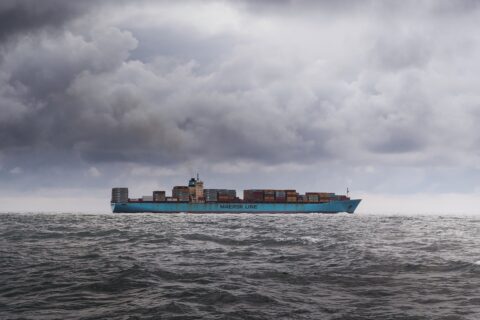
Businesses these days are not confined to a single shop, workshop or units. With increasingly helpful trade laws, logistics infrastructure and many other factors, more and more companies are aiming to take their business across boundaries. This implies, products need to be shipped across these boundaries, and there is, obviously, a need of good amount of budget involved here. Thus, it becomes important for us to understand the fundamentals of freight shipping – which will enable you to take informed decisions.
What is Freight Shipping?
Freight shipping refers to goods or produce being transported in bulk for commercial purpose. Freight can be shipped via one of more of the following transport modes – water, air, rail or road. A freight shipper can choose from one or more shipping modes depending on several factors, few of them being – the type of cargo, time available and cost of shipments.
Basics of Freight Shipping
Before you enter the world of shipping, it is very important for you to understand the fundamental factors and terms of freight shipping, which will further help you in making the right choice for your business.
1) Types of Freight Shipping:
- FCL (Full Container Load) Shipping – When you have large volume or size cargo that can occupy an entire container, it is recommended that you choose FCL shipping. In this type of shipping, you will need to book an entire container for your goods. This is ideal for businesses that have requirements of shipping goods in bulk at once.
- LCL (Less Than Container Load) Shipping – When you have goods to ship but their size / volume is not enough to fill an entire container, LCL shipping is the best option for you. In LCL shipping, your goods share container space with that of other companies. LCL Shipping is the most commonly opted by small to medium size businesses; you can read more about LCL shipping in our previous article here
- FTL (Full Truck Load) Shipping – Full Truck Load is like FCL shipping. FTL is opted by companies that have enough goods to occupy the space of an entire truck or trailer for themselves. This is a cost effective method when companies have enough cargo to fill up the truck; it is also time efficient, as the truck is not engaged to pick up and drop off cargo of any other company. FTL also means less damage, low possibility of lost goods as there is no transit or other stop for other goods.
You can also opt for FTL, if you don’t want your goods to share space, even when your cargo does not really fill the truck. - LTL (Less Than Truck Load) Shipping – LTL is like LCL shipping. When a company does not have enough cargo volume to occupy the space of an entire truck or trailer, LTL shipping is the best option to consider.
LTL shipping is a cost-effective method, wherein your goods will reach their destination at the stipulated time, but at the same time you will be splitting costs with other companies whose cargo is sharing space with yours. Goods are generally packed in pallets, to ensure they are handled safely through transit.
2) Freight Shipping Rates
Determining freight shipping rate depends on several factors, some of them being –
- Shipping Mode – Every shipping mode has a different price point comes The faster you want your goods to reach their destination, the costlier the price would be; air freight is thus one of the costliest shipping method.
- Weight and Volume of the Cargo – The cost of freight shipment is calculated based on measurements, volume and weight of the cargo. Not just the cost, but these elements also determine which type of freight shipping is most suitable for your cargo.
- Origin and Destination – This is again an obvious determinant of shipping cost. Shipping price is calculated based on the distance between the origin and destination of your cargo – further the destination, higher the cost
- Special Services – Freight that requires additional attention like fragile, refrigeration, perishables or hazardous materials, attract an additional cost.
3) Freight Shipping Documents
It is extremely important to have your key shipping documents in order, and that too the correct ones. These documents have a direct impact on timely delivery of your freight shipment. Here is the list of the most common documents –
- Proforma Invoice
- Commercial Invoice
- Packing List
- Export customs declaration
- Certificates of Origin
- Shipper’s Letter of Instruction
- Bills of Lading
4) Freight Shipping Delays
Despite the promise of timely delivery by freight companies, there are fair chances of delay in your shipment. This can be due to unforeseen or unexpected situations like weather conditions, route diversions, improper documentation or so. Delays can also lead to an increase in the shipping cost.
These and some of the other minor factors need to be taken care of while considering to ship your cargo or goods across boundaries.
The best and easier way, which many companies choose, is to leave their freight shipping hassles to an efficient freight forwarder, like ProConnect, who provide various freight shipping options along with support services as per your suitability, giving you the liberty of choosing what’s best for your cargo and your business.
Still have some questions in mind? Speak to our experts today or simply ask us for a Free Quote for your shipment; or just chat with us to know more.





 APP DOWNLOAD
APP DOWNLOAD
It made sense when you said that the distance between the origin and destination will have an effect on the cost of shipping. My brother wants to find a transportation brokerage provider to provide freight services for his industrial manufacturing business. The tips you shared here should give him a
Thanks for the information on the different types of shipping options, such as how you can choose LCL shipping if you don’t need a full container for your goods. Knowing the size you need would be good to help you start research shipping containers to figure out which one you want to buy or hire. It might also help to think about the types of goods you have when choosing containers so that you can ensure it’s safe, especially if you’re working with delicate or perishable goods that require specific conditions to transport them.
I liked how you said that if the company doesn’t have a full cargo could benefit from an LCL shipping service. My boss has sole products and containers that need to be shipped toa different state, but he doesn’t want t pay for a full truck because he is trying to save a much money possible for this cargo. I will pass him the details that way he can be aware of fpo the different freight shipping options he has.